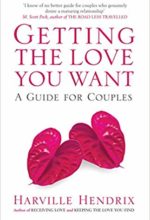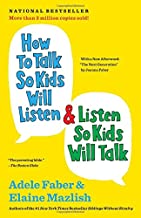Dana Cole, LMFT, has created a quick and easy-to-use guide to finding resources at the bookstore or library. She has spent the last 30-plus years providing relationship help to her clients, and these are the resources she believes to be most insightful.
Topics range from general relationships to parenting to sibling rivalry. But first, we share Dana’s personal top five reads.
Feel free to reach out with additions and questions about any of the resources you see here.
Dana’s Top Five Recommendations

Getting the Love You Want: A Guide for Couples
Getting the Love You Want Workbook (Useful tool for the book)
Harville Hendrix, Ph.D.
Dana Cole has had the opportunity to work with Dr. Hendrix personally, and she feels this is a brilliant book on relationships. It explores age-old topics like why we pick the partners we do and provides insights into how we can turn the inevitable confit into personal growth.
The workbook was actually published later than the original guide to replace the “exercises” section with updated activities. Dana finds it a very useful tool in tandem with the book. She has recommended it for individual use and between partners.

The 5 Love Languages: The Secret to Love That Lasts
Gary Chapman
This book suggests that understanding how we express love differently can help us improve our communication with one another. Chapman theorizes there are five general ways we do this.
Although the theories lack research, Dana Cole finds this guide helpful in providing clients with immediate results while working through more complex issues that may relate to why we identify with a particular “love language.” It gives partners an easy way to talk about their relationships, and better ways to identify how they are expressing themselves.

How to Talk So Kids Will Listen & Listen So Kids Will Talk
Adele Faber and Elaine Mazlish
This reference on communication between parents and their children provides an approach to improving various relationships in your home. The Boston Globe hailed it the ultimate “parenting bible.”
Find insights, tips, and time-tested methods for solving common problems and addressing big topics like expressing strong feelings, setting firm limits, cooperation, and self-discipline. Dana finds it especially helpful for working with older children.

Siblings Without Rivalry
Adele Faber and Elaine Mazlish
Another book by internationally acclaimed experts on parent-child relationships, this one addresses a topic on every parent’s mind at some point: How to Help Your Children Live Together So You Can Live Too.
There are practical tools for coping with conflict and reducing competition. There is also helpful advice on when and how to intervene when issues between siblings arise. The latest version incorporates the authors’ gleanings from years of parent and professional workshops. Dana Cole feels this book is the best guide to sibling relationships.

Positive Discipline
Jane Nelsen, Ed.D.
Dr. Nelson tells us that the key to discipline isn’t punishment, but mutual respect. Her book coaches parents in techniques for being both firm and kind in order to teach creative cooperation and self-discipline without compromising the dignity of their children.
These methods are steeped in a philosophy developed by Rudolf Dreikurs, an American psychiatrist and educator, that problem behavior was a result of feeling insignificant in a social setting. He described four common behaviors children would resort to and provided ways parents could respond. Dana Cole feels Nelson “does Dreikurs [even] better than Dreikurs does!”
Note, this resource library is always a work in progress. So if you’ve found a particular reference helpful in your own life and relationships, send us the information — we would love to consider adding it to this list!
Dana Cole’s Resource Library for Relationship Help
Dana Cole, LMFT, has created a quick and easy-to-use guide to finding resources at the bookstore or library. She has spent the last 30-plus years providing relationship help to her clients, and these are the resources she believes to be most insightful.
Topics range from general relationships to parenting to sibling rivalry. But first, we share Dana’s personal top five reads.
Feel free to reach out with additions and questions about any of the resources you see here.
Dana’s Top Five Recommendations

Getting the Love You Want: A Guide for Couples
Getting the Love You Want Workbook (Useful tool for the book)
Harville Hendrix, Ph.D.
Dana Cole has had the opportunity to work with Dr. Hendrix personally, and she feels this is a brilliant book on relationships. It explores age-old topics like why we pick the partners we do and provides insights into how we can turn the inevitable confit into personal growth.
The workbook was actually published later than the original guide to replace the “exercises” section with updated activities. Dana finds it a very useful tool in tandem with the book. She has recommended it for individual use and between partners.

The 5 Love Languages: The Secret to Love That Lasts
Gary Chapman
This book suggests that understanding how we express love differently can help us improve our communication with one another. Chapman theorizes there are five general ways we do this.
Although the theories lack research, Dana Cole finds this guide helpful in providing clients with immediate results while working through more complex issues that may relate to why we identify with a particular “love language.” It gives partners an easy way to talk about their relationships, and better ways to identify how they are expressing themselves.

How to Talk So Kids Will Listen & Listen So Kids Will Talk
Adele Faber and Elaine Mazlish
This reference on communication between parents and their children provides an approach to improving various relationships in your home. The Boston Globe hailed it the ultimate “parenting bible.”
Find insights, tips, and time-tested methods for solving common problems and addressing big topics like expressing strong feelings, setting firm limits, cooperation, and self-discipline. Dana finds it especially helpful for working with older children.

Siblings Without Rivalry
Adele Faber and Elaine Mazlish
Another book by internationally acclaimed experts on parent-child relationships, this one addresses a topic on every parent’s mind at some point: How to Help Your Children Live Together So You Can Live Too.
There are practical tools for coping with conflict and reducing competition. There is also helpful advice on when and how to intervene when issues between siblings arise. The latest version incorporates the authors’ gleanings from years of parent and professional workshops. Dana Cole feels this book is the best guide to sibling relationships.

Positive Discipline
Jane Nelsen, Ed.D.
Dr. Nelson tells us that the key to discipline isn’t punishment, but mutual respect. Her book coaches parents in techniques for being both firm and kind in order to teach creative cooperation and self-discipline without compromising the dignity of their children.
These methods are steeped in a philosophy developed by Rudolf Dreikurs, an American psychiatrist and educator, that problem behavior was a result of feeling insignificant in a social setting. He described four common behaviors children would resort to and provided ways parents could respond. Dana Cole feels Nelson “does Dreikurs [even] better than Dreikurs does!”
Note, this resource library is always a work in progress. So if you’ve found a particular reference helpful in your own life and relationships, send us the information — we would love to consider adding it to this list!
